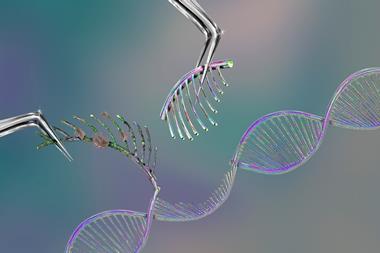How long is ‘too long’ in the drug discovery game?
Here’s a question that’s not unique to the sciences, but can be asked in almost any research organisation in the world: can a person hang on too long doing research, and if so, when can one tell if that point has been reached? I don’t mean someone who’s become so old or infirm that they can no longer do productive work. I’m speaking of someone who could still potentially be useful, but has managed not to be. There are, unfortunately, several ways to end up in that position.
One is what’s usually referred to as ‘burnout’, which I’d define as a more or less permanent loss of interest in one’s work. Some personality types are almost immune to this (or are if they’re doing the right sort of work), but other types (and other jobs) present more of a risk. Repetitive work surely brings this on faster, for obvious reasons. In fact, the only way I can see anyone doing such tasks year after year is via the defence mechanism of never being very interested in the work in the first place. A small mental investment doesn’t give a person very much to lose.
But it doesn’t give a person very much to win, either. Most people would prefer work with the potential to stay interesting, but even some of these jobs can pall. What used to seem like a constant variety of new issues and tasks can gradually fade into a routine, a process that leaves much more of a gap in a person’s mental landscape. There’s compensatory pleasure in being able to do a job well and being able to meet whatever challenges it can produce, but that’s not always enough to keep fatigue from setting in.
Drug discovery is a good example. There are many younger researchers who very much want to get their first turn at running a new project and leading a team of scientists. Someone who’s done that many times, though, may start to feel a certain over-familiarity setting in. Yes, the structure-activity relationship is hard to understand - isn’t it always? The selectivity of the lead compound is a worry - but isn’t it always? The formulations group says that it’s not very soluble, and that they’re having trouble finding a suitable vehicle. But when did they ever say anything else? The important thing, though, is to use that experience as a means to stay focused on the most important issues, while not panicking about the things that have always tended to get sorted out.
Some environments risk exacerbating this problem. A department whose leaders slip too easily into crisis mode will wear out its people faster than it should. King Harry only urged his army ‘once more unto the breach’, and Shakespeare gave him enough sense not to try repeating that line during every skirmish. Drug discovery is difficult enough without someone trying to make it even harder.
Been there, done that
A worn-out scientist isn’t doing as much good as he or she could be, but there’s another sort of too-long-in-one-spot researcher who crosses the line into doing actual harm: the person who’s not only seen everything already, but knows that none of it is going to work. It’s not going to work, you see, because it’s already been tried. Long ago. It’s almost impossible to come up with anything that this person won’t tell you has already been tried, to be honest. And as it happens, there’s basically only one way to do successful drug discovery, and it happens - by coincidence - to be the way this person does it. He knows, because he’s been there. He has, in fact, been everywhere.
The problem (as other experienced researchers will appreciate) is that a person like this is, in fact, generally correct when they say that some new idea won’t work. Most things don’t. But under these conditions, it’s hard to distinguish prophecy from pessimism. The important point is not that most new things fail - it’s that some new things actually succeed. Arguing with the permanently jaded about this isn’t worth the effort, though, and is a good example of the saying about not wrestling with a pig: you both end up covered in mud, but the pig enjoys it.
Derek Lowe












No comments yet